Rotating Fatigue Testing Apparatus
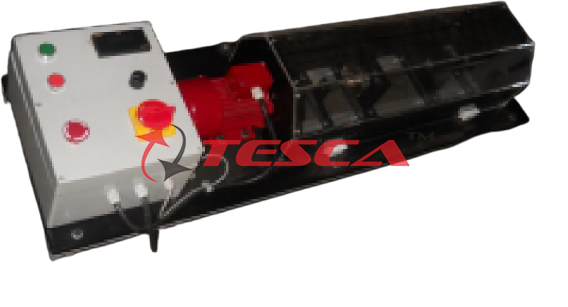
Order Code: 32199
Category: Strength of Materials Lab
Features Tesca Rotating Fatigue Testing Apparatus has been designed to introduce students to the effects of material fatigue using a sinusoidal variation of bending stress. A 2800rpm motor rotates a specimen through a gear and pulley arrangement bet...
SPECIFICATION
Features
Tesca Rotating Fatigue Testing Apparatus has been designed to introduce students to the effects of material fatigue using a sinusoidal variation of bending stress. A 2800rpm motor rotates a specimen through a gear and pulley arrangement between 5600 or 1425 rpm. The specimens are held within ‘keyless’ chucks and loaded using a cantilever arrangement, with the load being applied through a screw jack mechanism with integral cantilever load cell. The applied force is captured on the ‘on-board’ digital display along with the revolution count of the specimen. Both values can be reset and zeroed (tared) prior to the testing commencing. When failure occurs, a micro-switch stops the motor and the cycles to failure are registered on the digital display. The count remains when the motor is not running and the ability to reset the counter has been designed in. A safety guard shields all rotating parts.
Optionally digital display incorporates a USB socket, which allows a host computer (not supplied) to be connected to the apparatus. The software supplied with the apparatus allows the capture and reviewing of data. Through an appropriate spread-sheet software (not supplied), printing and manipulation of data can be completed.
To test necked specimens of different materials
To be fully guarded in order to restrain fractured specimen
Rotate a loaded cantilever until failure occurs in rupture
Specimen loading via screw jack mechanism with integral cantilever load cell
Rotational speeds variable through gear ratios
To have digital display of specimen revolutions, applied force on specimen
Motor to stop automatically on specimen failure
Reset and tare function for digital display
To be supplied with mild steel test specimens
Comprehensive technical manual
Experiments
To make an introductory study of fatigue using a Wohler rotating fatigue apparatus, including the time to failure caused by various stress levels and materials
Introducing students to S-N curves
Material specification on fatigue limits
Specimen geometry on fatigue limit
The accessory affords bending fatigue of a cantilevered strip of metal or plastic in modes varying from alternating to fluctuating stresses
Operating Conditions
Operating environment:
Laboratory
Storage temperature range:
–25oC to +55oC (when packed for transport)
Operating temperature range:
* +5oC to +40oC
Operating relative humidity range:
80% at temperatures < 31oC decreasing linearly to 50% at 40oC
Specially machined necked test specimens are provided in steel. These have a 4mm nominal neck diameter and are held in the unit using collet chucks. All tooling is provided to allow the removal and fitting of these specimens. A full technical instruction manual is supplied, which details full unit operation, experimental technique, example results and relevant theory.
Specifications
To demonstrate the effects of fatigue
To be self contained bench top unit on sturdy, heavy base plate
To be data acquisitioned for capturing applied force, specimen revolutions
Optional Data Acquisition software supplied

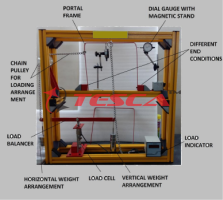
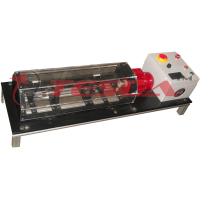

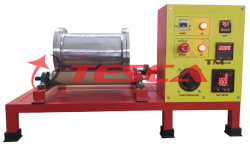
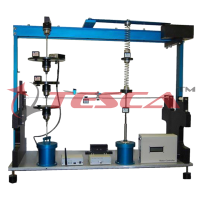


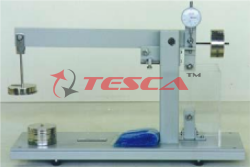
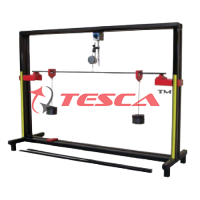

 91-9829132777
91-9829132777